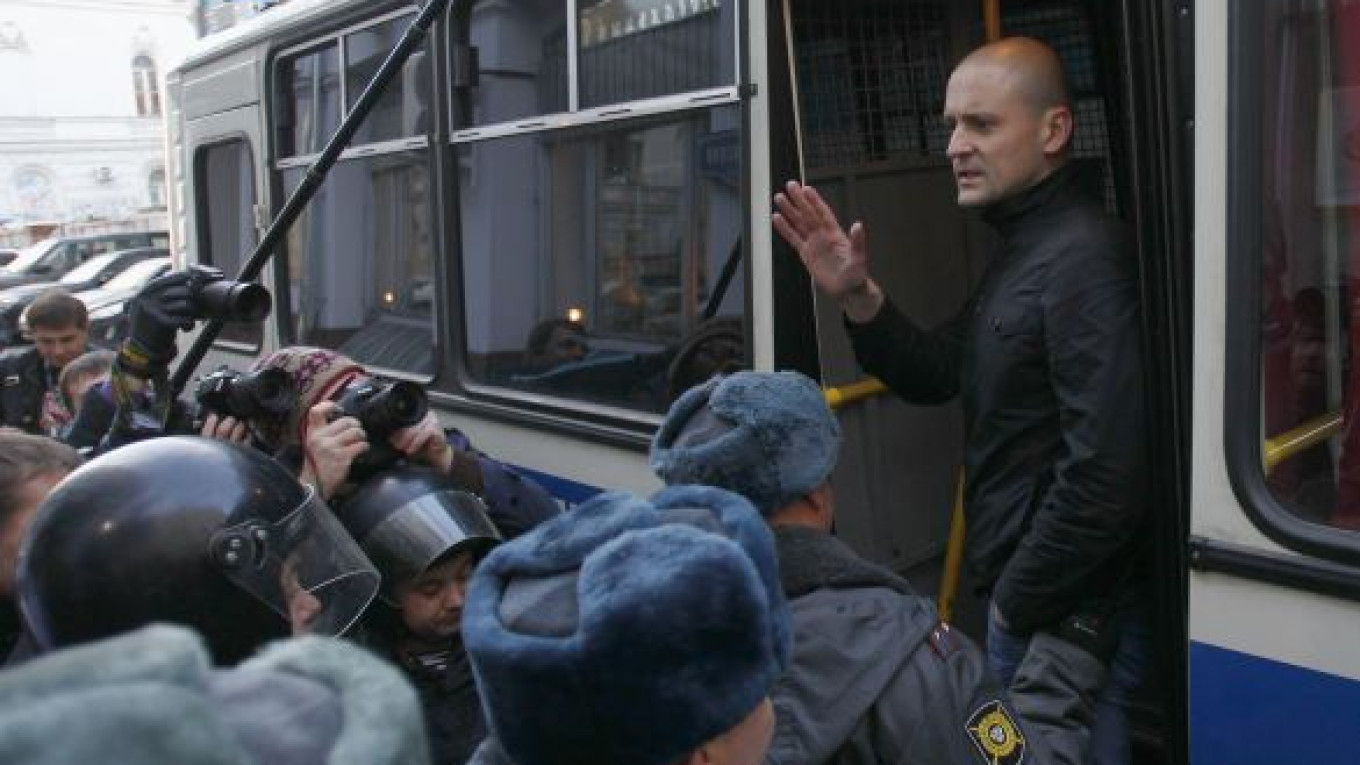Members of the opposition's newly elected Coordination Council agreed at their first meeting over the weekend to stage their next rally in December and press the U.S. to expand its Magnitsky list of banned Russian officials.
The opposition group, which met at a restaurant in central Moscow on Saturday, is tasked with trying to mount a structured challenge to President Vladimir Putin.
"They gave us the mandate of trust and made us responsible for coordinating efforts of dozens, hundreds, thousands and millions of people who want positive changes in our country," said Alexei Navalny, the anti-corruption blogger who collected the most votes in the Oct. 20-22 online elections for the Coordination Council.
After some bickering, the new group of 45 leaders agreed to hold the next rally in December to mark the anniversary of the first anti-Putin protests after disputed State Duma elections.
The council also agreed to seek to expand the U.S. Magnitsky list, which bans Russian officials implicated in the 2009 jail death of anti-corruption lawyer Sergei Magnitsky and other people accused of human rights violations.
"I think that the list will be passed, at least in America, by the end of the year," said Garry Kasparov, a council member and former chess champion, Interfax reported.
The Magnitsky bill is making its way through U.S. Congress, while a similar bill has been under discussion in the EU Parliament.
"If we are able to ensure that the governments have taken the first step, we can provide new lists," Kasparov said. "The first step is the hardest."
After the council meeting, police briefly detained Navalny and two other opposition leaders, Ilya Yashin and Sergei Udaltsov, as they tried to take part in a march of several dozen opposition supporters. The three were released after several hours at the police station and face fines of up to 30,000 rubles ($1,000) or up to 50 hours of community work for violating public order. Police said the protest was not sanctioned by Moscow authorities, as required by law.
Swedish Foreign Minister Carl Bildt expressed concern about the latest detentions. "Reports about new arrests of democratic opposition activists in Moscow. Many signs point to a much harsher regime attitude," Bildt wrote on Twitter.
The pro-Kremlin United Russia party poured scorn on the council's first session, saying that the new leaders were not capable of proposing a constructive agenda or moving the country forward.
"The fact that the opposition is debating how to mark the anniversary of its protests shows that they are looking into the past, not the future," senior party official Alexei Chesnakov told Interfax.
(Reuters, MT)
Related articles:
A Message from The Moscow Times:
Dear readers,
We are facing unprecedented challenges. Russia's Prosecutor General's Office has designated The Moscow Times as an "undesirable" organization, criminalizing our work and putting our staff at risk of prosecution. This follows our earlier unjust labeling as a "foreign agent."
These actions are direct attempts to silence independent journalism in Russia. The authorities claim our work "discredits the decisions of the Russian leadership." We see things differently: we strive to provide accurate, unbiased reporting on Russia.
We, the journalists of The Moscow Times, refuse to be silenced. But to continue our work, we need your help.
Your support, no matter how small, makes a world of difference. If you can, please support us monthly starting from just $2. It's quick to set up, and every contribution makes a significant impact.
By supporting The Moscow Times, you're defending open, independent journalism in the face of repression. Thank you for standing with us.
Remind me later.


